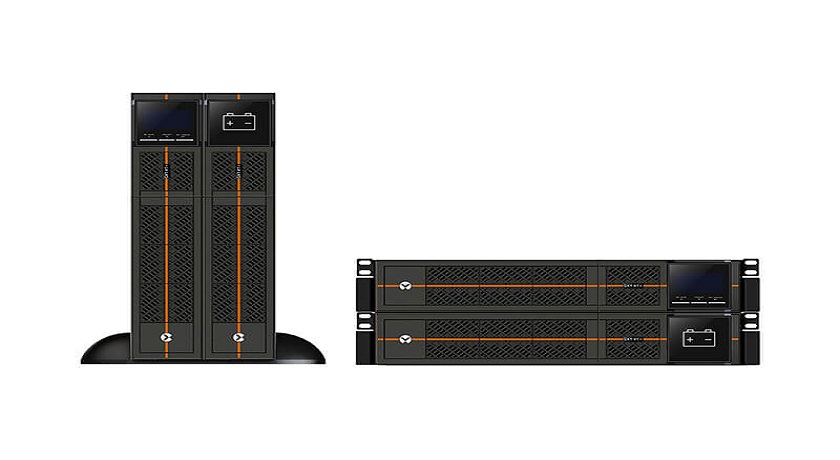We recommend conducting a cctv installation site survey before installing a surveillance system and documenting…

Factors to consider while buying UPS
Factors to consider while buying UPS
Uninterruptible Power Supplies (UPS) are a critical component of any modern business or home setup, ensuring that your devices and systems stay operational even during power outages or surges. Selecting the right UPS in Kenya for your needs is essential to protect your equipment and maintain uninterrupted productivity. In the case of businesses, UPS is extremely important for both large and SMEs in Kenya.
Unexpected power outages, whether in a small or large business, can have disastrous consequences. As a result, you cannot ignore this issue entirely. Purchasing a UPS is not difficult because there are numerous reliable suppliers.
Power outages typically last only a few minutes, so if you have a good UPS system, you will have enough time to make data backups and complete critical tasks. Furthermore, it protects your computer and other devices from sudden voltage fluctuations caused by lightning, transformer or distribution failure, and so on.
View: Critical Power Backup Solutions for SMEs in Kenya
WHAT ARE THE IMPORTANT TYPES OF UPS?
Standby UPS (Offline UPS):
This is the most common type, and it is appropriate for personal computers and small electronics. It works by delivering power directly from the utility to the connected devices and switching to battery power when a voltage drop or outage is detected. Although standby UPS units provide basic surge protection and battery backup, they may have a short switchover time.
UPS with Line Interactivity:
UPS units with line-interactive capabilities are ideal for protecting home offices and small business setups. They provide basic voltage regulation, which aids in voltage stabilization during surges and brownouts. These UPS systems are more robust than standby UPS because they provide both surge protection and battery backup.
View: Enterprise Compute and Storage Solutions for SMEs in Kenya
UPS Online (Double-Conversion):
The most advanced online UPS units provide the highest level of power protection. They continuously convert incoming alternating current to direct current (DC) and then back to alternating current (AC). This double-conversion process ensures a consistent, clean power supply regardless of utility power quality. Online UPS is ideal for data centers, mission-critical servers, and industrial applications that require zero downtime.
Factors to Consider for your UPS installation in Kenya
Determine Power Requirements:
Before installing a UPS, you must accurately calculate your power requirements. Determine the total load (in watts or VA) of the equipment that will be connected to the UPS. This step is critical in determining the appropriate UPS capacity.
Choose the Correct UPS Type:
Select the type of UPS that best meets your requirements. The type can range from a simple standby UPS for home use to a sophisticated online UPS for critical data center operations.
Location and surroundings:
Choose a suitable location for the UPS system. It should be a cool, well-ventilated area with minimal dust and humidity exposure. Make sure you have enough room for installation and maintenance.
Input Voltage and Frequency:
Confirm that the UPS’s input voltage and frequency are compatible with the local power supply. Ascertain that it can withstand voltage fluctuations and frequency changes if necessary.
Battery Life and Capacity:
Determine the battery capacity and runtime required. This will be determined by the criticality of your equipment and the length of time you require it to operate during a power outage. Choose a UPS with the correct battery size.
Scalability and redundancy:
Consider options for redundancy and scalability. Redundant UPS systems can provide failover protection for mission-critical applications. Scalable UPS systems enable you to increase capacity as your power requirements grow.
Circuit and wiring evaluation:
Check that your electrical circuits and wiring can support the UPS load. Professional electricians might be needed to make any necessary upgrades.
Safety measures:
such as surge protection, grounding, and fire suppression systems, should be implemented to protect both the UPS and the equipment it supports.
Software and Monitoring:
Consider purchasing UPS monitoring and management software. In the event of a prolonged outage, this allows for remote monitoring, diagnostics, and automatic shutdown procedures.
Contracts for maintenance and service:
Create a maintenance schedule for the UPS system. Consider signing service contracts with the manufacturer or a third-party provider to ensure optimal performance and prompt problem resolution.
Plan for Battery Replacement:
Create a battery replacement strategy based on the UPS batteries’ expected lifespan. To maintain performance, replace batteries on a regular basis.
Emergency Action Plan:
Create an emergency response plan outlining the steps to be taken in the event of a UPS failure.
Budget and expenses:
Create a budget that includes the cost of the UPS system, installation, maintenance, and any additional infrastructure upgrades that may be required.
Training and documentation:
Ensure that your IT staff and other relevant personnel are trained in UPS system operation, maintenance, and troubleshooting. Keep detailed documentation of the UPS setup for future reference.
Regulation Compliance:
Make certain that your UPS installation in Kenya complies with local electrical codes and regulations. This could entail obtaining the necessary permits and inspections.
In Conclusion:
A well-planned UPS installation solution in Kenya is critical for ensuring that your critical equipment operates continuously and reliably. Consider these factors carefully in order to make informed decisions that are in line with your specific power protection requirements and infrastructure requirements.



